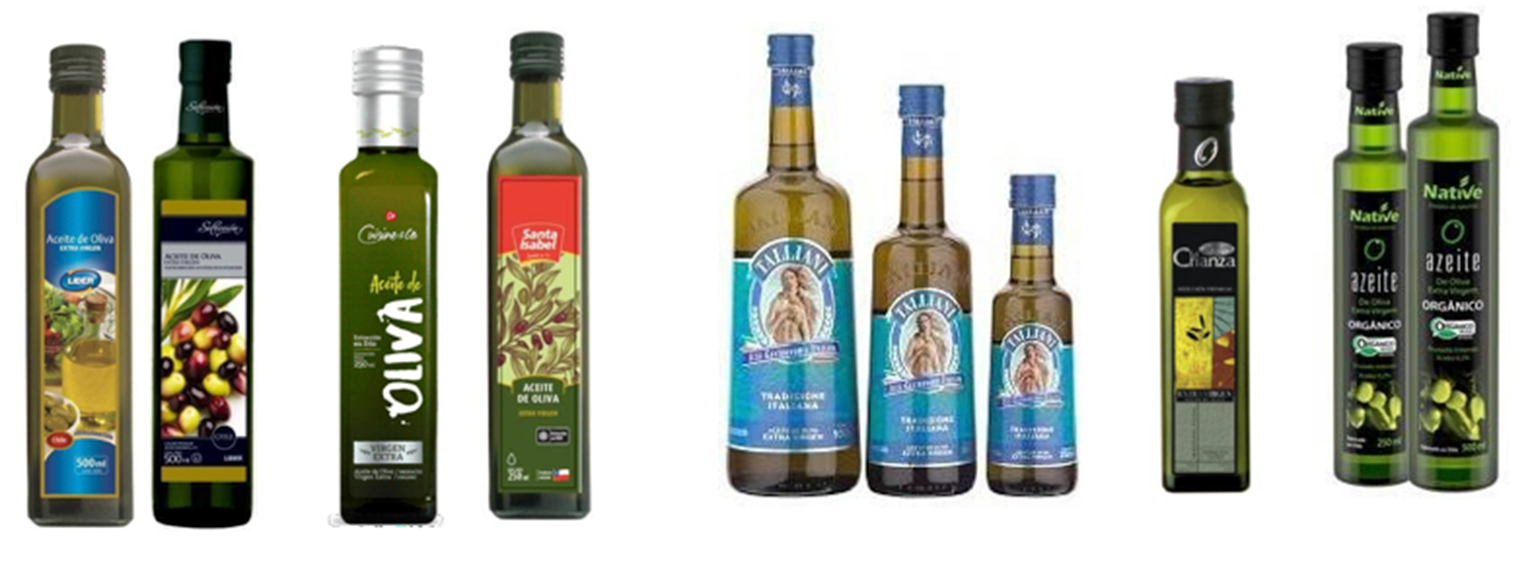It seems like a simple question, but it can be as complex as the product. In a simplified way, Olive Oil is the juice of olives, also known as olives. But not all Olive Oils are the same: some contain beneficial properties for health while others lose them almost completely. To find out more, skip to the next question!
Olive oil is a complex product, with attributes that vary from one oil to another. These attributes are determined by a variety of factors such as the oil extraction method, the types of olives used, the time of harvest, etc.Extra Virgin: It is the olive oil extracted from fresh, unripe olives, without the use of chemicals or heat, preserving its culinary, antioxidant and vitamin properties. On the other hand, a Virgin or Pure olive oil is a refined oil that has lost many of these properties.
Cold Extraction: In order to extract Extra Virgin olive oils, centrifuge or pressing methods are used. They are mechanical processes carried out at temperatures below 27°C, so the properties of the oil are preserved and it is free of added chemicals.
Maximum Acidity: Indicates the concentration of Free Fatty Acids in the oil. It is a general indicator of quality. An Extra Virgin Olive Oil contains a concentration of less than 0.8%, and our Oils have an acidity of less than 0.3%. Does it affect the taste? Yes, but almost imperceptibly at such low concentrations. Other factors are more important.
Blend or Monovarietal: A Blend oil is one that incorporates mixtures of olive varieties, while a Monovarietal is made up of only one. To understand why they mix, we can think of varieties and vintages as flavor palettes: to get a desired flavor, we must mix certain flavors in proportions. A Blend is the result of a profile of flavor and aromas sought by the producer, being able to modify the proportions and varieties to maintain consistent flavors. If you liked an oil, we will do our best to ensure that its flavor is always the same. On the other hand, monovarietals will depend much more on the harvest.
It’s not bad. You should only let it recover a moderate temperature. Remember that olive oil is a product that naturally contains vegetable fats, so when they cool they tend to solidify. This does not affect the quality or safety of your oil and is only cosmetic.
Extra Virgin olive oil, being a natural product, slowly undergoes an inevitable process called oxidation, which makes the oil rancid and eliminates its beneficial properties. But depending on how you have stored the oil, this process can be faster or slower:Avoid exposing it to light. Chlorophyll, naturally present in oils, reacts to it and accelerates oxidation. This is why the bottles are green or amber!
Avoid exposing it to heat. For the same reason that the oil is «cold extracted», you should avoid exposing it to high temperatures so that it does not lose its antioxidants or change its flavor or aroma. You can store it in cold places, but it could solidify. Check the previous question for more information.
Minimize exposure to air and consume as soon as possible. Contact with air allows the oil to oxidize. It is a slow and unavoidable process, but for this reason the relatively well-preserved oil lasts around 2 years. Some may last longer or shorter, depending on storage conditions.
Most Extra Virgin Olive Oils contain high levels of Monounsaturated Fats and Antioxidants such as polyphenols and tocopherol. They also contain plant sterols that are believed to lower cholesterol levels. All these attributes are desirable to maintain health, in addition to being an exquisite culinary resource. However, remember that it must be Extra Virgin -not Virgin or Pure- to ensure that it maintains its properties.
Yes. The low concentration of Free Fatty Acids means that the temperature at which it burns is higher, so it is especially recommended to fry or sauté with Extra Virgin Olive Oil, since it can withstand temperatures of up to 180°C or 200°C. depending on the oil.
Like many food products, it will depend on your preferences. Some attributes of Extra Virgin Olive Oil that vary between oils are itchiness, bitterness, intensity and how fruity or ripe its flavors are; its aromas of herbs, green or ripe fruits, etc. In short, try and experience flavors!What we can assure you is that we do everything possible to ensure that each variety of our oils is consistent over time, in addition to meeting the highest quality standards in its production. That way, when you look for it again, you’ll know it’s a product you can trust.
Not really. Among other things, it may be related to the degree of maturity of the fruit at the time of harvest -due to the greater presence of chlorophyll in green fruits-, but it is not a rule. Likewise, a green-colored oil can turn gold in your pantry, which does not mean that it has lost quality or integrity. However, if your oil is very green, you should store it in a very dark place to prevent the chlorophyll from reacting and decreasing the shelf life of your oil. As a side note, if your oil appears cloudy, it has probably been exposed to cold. Check the previous question for more detail!


